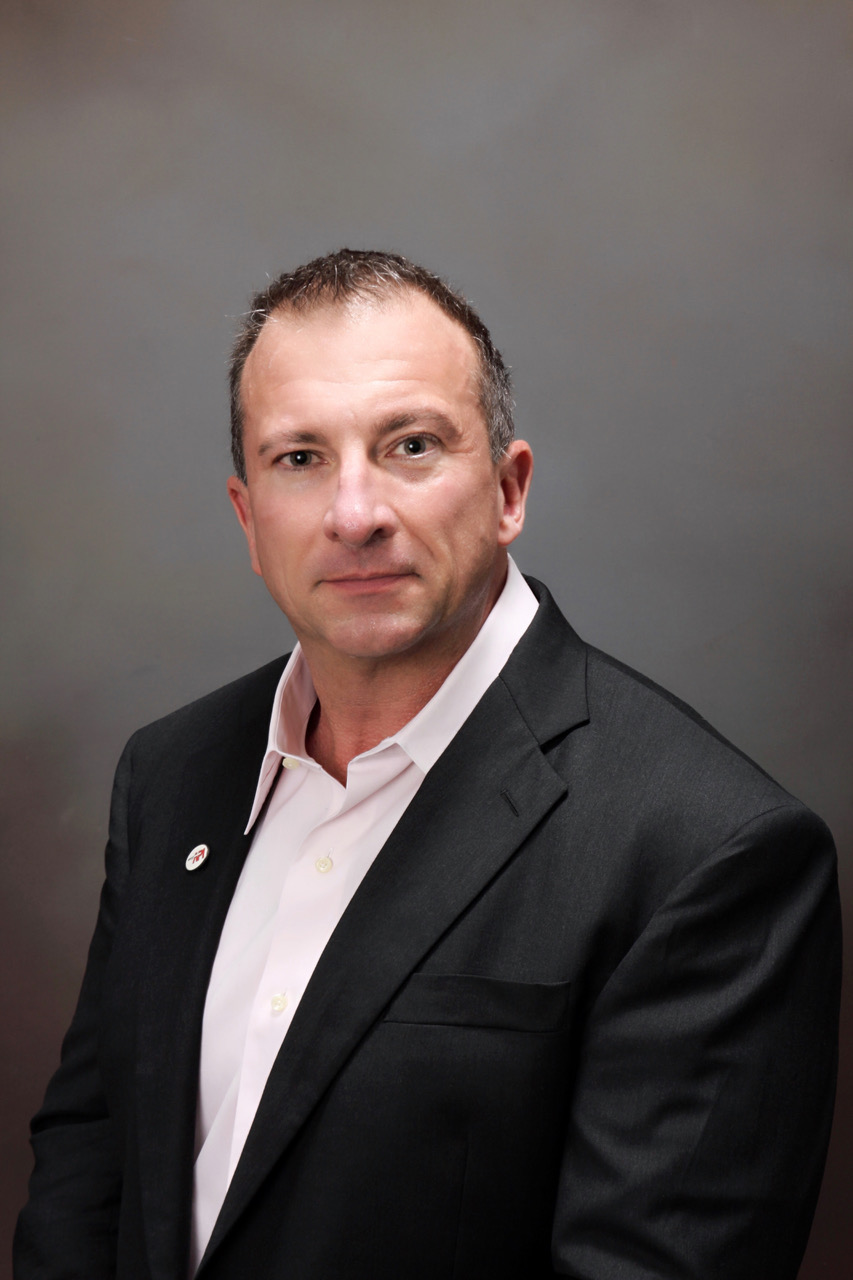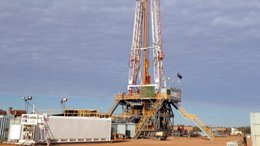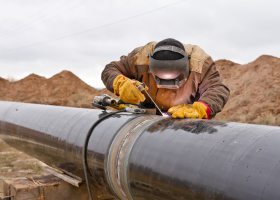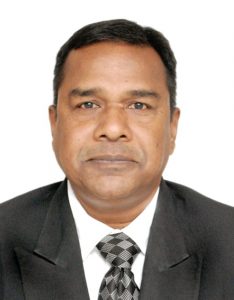
Mark LaCour, Director, Modal Point
Mark LaCour, Director Modal point has shaped enviable career in oil and gas sector. A driven business-minded man. In this interview he shares the impact of collaboration in the nation’s oil and gas industry.Industry trends, digital technologies and his prediction for the future of the oil and gas industry in next five years.
Hussein BOFFU brings the excerpts.
Briefly tell us how did you get into oil and gas business?
I got started in the oil and gas industry almost twenty five years ago working for the phone company in the East of the United States of America. And I knew absolutely nothing about the oil and gas industry.
That was actually valuable to me, I just didn’t know in that moment because when I got handed all the oil and gas accounts in BellSouth territory, I got handled everything; upstream companies, midstream companies, downstream companies and service companies. So, I got to see the entire industry how it works from beginning to end which is actually really valuable. Most people in our industry don’t know the whole industry, they only the part that they work in.
So, I did a bunch of work there, made a lot of great relationships, really proved myself during hurricane Katrina. My last corporate job was with Forrester Research where I had the oil and gas key accounts. And about nine years ago, I’ve decided to start my own company which is Modal Point and we were market research company in oil and gas.
So, I literally built this company, I did nothing but learn and talk to industry leaders about trends that we can help our clients sell their products and services. So, once again, I was consistently constantly learning about the industry.
During that journal, I got a bunch of associations that wanted me to come on board. I’m on the board of directors with the American Petroleum Institute, the director of public relations and so, that even further my industry knowledge. As part of growing Modal Point’s business, I got involved in social media. We launched the first podcast about four years ago and you fast forward to now and we now have the top six podcasts in the world in the oil and gas industry all sponsored by big companies and we’re growing. We add a new podcast every other month or so.
I now get paid to speak or do panels. And so, Modal Point I’ve literally shut down as my market research company and sort of back up as my speaking platform.
So, if Hussein would ask me today what do I do for a living, I have to say I just talk for living which is actually kind of cool.
Aside from the drop in oil price, what are some of the challenges the industry is facing?
The industry is facing two – two big challenges right now. One is negative public perception which there’s always been some of that, but in the last decade social media has allowed the people that don’t like our industry to amplify their messaging. And so, a lot of people in the world don’t understand the benefit that our industry brings to mankind. That’s dangerous. That’s going to affect us the ability to hire and retain talent to work in new areas of the world.
The second thing I spoke about talent is the labor shortage. So many young people in today’s world don’t want to come work in our industry and the oil and gas industry is an industry of engineering and project management. What happens if we can’t hire project managers and engineers? It’s going to really hurt us.
Now, part of that is the drive the adaptation of new technology. And then, finally, the anti-oil and gas people have gotten really smart. They figured out if they can shut down pipelines and you can’t move hydrocarbons to markets so there’s no reason to drill, there’s nothing for anybody to buy. And, same way with water, both — getting rid to produce water and then actually the use of fresh water in drilling operations.
And so, those are some of the challenges the industry is facing, but the negative public perception I would say is number one.
How do you think the global oil trade will evolve in the future?
The trade is already evolving. With things like block chain, there’s no longer chances for people to get rip off for people to steal from other people during oil and gas transactions. So, the global oil trade will evolve.
The other thing that’s happening here in the US is we’re getting more and more LNG exports and less and less crude oil exports. Now, we still – still to this day export a ton of crude and natural gas and that won’t ever stop. But, it is interesting to see the rise in LNG exports because LNG is the fuel of the future. If you look at what Exxon and Shell has done the last couple of years, they’ve turned themselves into natural gas companies because they realized that natural gas is the fuel of the future.
But, there’s a flipside to that and that is even though we’re building around the world and a lot of here in the US LNG facilities to export natural gas, other parts of the world then need to build the opposite of that which is LNG import facilities so they can take that liquefied natural gas and turn it back into a vapor and put it in their gas system. So, that’s just years and years and years and years of construction projects which will benefit the companies that build those types of things.
What are your thoughts on collaboration between service providers in the East African oil market?
So, right now they are not collaborating, but if they want to maintain future business, they will have to collaborate. The world’s population is rapidly getting to a point where they understand because of things like internet access how business should be done, right? They’re no longer sequestered off somewhere and they don’t understand how the rest of the world does business.
One of the big things is the oil and gas industry needs to be fully supportive of local communities. So, not just come there and offer jobs, but come to different countries and offer careers, not a job, but career paths. Offer things like help build schools and hospitals and medical care and help build infrastructure. And we do that, but in order to do that effectively in the future, the service companies especially have to quit looking at each other as competitors even though they are and work together.
It’s interesting, you’re starting to see this happen right now in the US in the Permian which is one of the hot fields of land in the world. There’s not enough resources, so the service providers are having to work together because they don’t have any choice and it’s actually a really beautiful thing.
Please share your top predictions for the next five years?
I don’t have a crystal ball. I think downstream is going to be a huge market for everybody. And downstream is basically taking hydrocarbons and turn it to stuff that you can sell like plastics and paints and insulation and foam rubber and you know car tires and windmill blades. That’s going to be huge because the world’s population is moving out of rural agrarian society.
You know think of China, think of India, think a lot of the countries in Africa where right now people are farmers and they have a family that’s their labor force and that’s what they use to feed themselves. In another generation or two they’re all going to be living in cities. So, right now, they don’t need plastic buckets and they don’t need Tupperware and they don’t need, you know, Band Aids, but pretty soon they will need that and all that comes from hydrocarbons. So, that’s one of the big things in the future is we’re going to use less and less oil and gas for fuel, but more of it to make stuff.
The other thing is the oil and gas industry is vital to space travel. No one ever talks about that. The only fuel that has enough energy density to get us out of our gravity well here on earth is hydrocarbons. So, you look at what Elon Musk is doing with Space Xs. His rockets run on kerosene, refined from crude oil. It’s basically kerosene and liquid oxygen, it’s the power combination to get us out. So, all of these stuff that makes space life happens; space suits, oxygen tanks, shelters, space stations, reentry capsules, the tires on the landers, the remote operated vehicles that we send out ahead of the humans, all that is made from hydrocarbons. So, I think the space industry is going to be another big growth area for us in the future.
You can see a lot of stuff geopolitically happen. The US now is for the first time in its history has the ability to out or over supply OPEC. If we wanted to, we could open up all these wells that are sitting here that haven’t been put production here just in the US and produce more oil and gas than OPEC ever could.
Now, we geopolitically are the swing player, that’s a really cool place because one of the things that you can do is you can use hydrocarbons as a weapon and that’s what OPEC historically has done. Now, we’re taking that ability away from them and unfortunately, also, away from the Russians. I really wish the Russian US would start cooperating instead of looking at each other as enemies. I was a marine during the Cold War; I don’t want to go back there. So, hopefully our leaders can fix all of that.
We talked about – we haven’t talked about for the future things like data, the data that the oil and gas industry has created for years all of a sudden has become value – has become more valuable in the future.
You know you look at something like Google maps, companies like Exxon and Chevron have that type of degree of global seismic data. So, not just the pictures of the buildings and where the streets are, they know what’s under the ground all over the world, that is super valuable.
So, those are some predictions in the next five years.
What are the imperatives in LNG and other oil and gas projects in Tanzania industrialization?
LNG is a quick way for Tanzania to start producing abundant reliable cheap electricity for its people. That abundant cheap reliable electricity leads to prosperity because now schools have electricity, hospitals have electricity, the people in Tanzania have electricity, so they can learn so they have internet access. So, I think it’s – and LNG is automatically 60% cleaner than running coal to make electricity. So, I think that’s a good use of LNG in Tanzania.
The thing is though, they may not actually need LNG as Tanzania’s developing its oil and gas projects, you’re hitting natural gas, actually a lot of natural gas. Unless you’re going to export it, you don’t need to spend the time or the money to compress it into LNG, you just need to build infrastructure to bring it to all the people.
If you think about it here in the US, I have a natural gas stove sitting in my kitchen right now. When I go turn that natural gas stove to a big infrastructure, so a series of pipes, literally my stove is connected back to the Jurassic or [0:11:13 inaudible] era in our history because that’s where that well is. Think about that. I am literally getting natural gas that was developed while the dinosaurs are on the earth or after or before and it’s being transported through the infrastructure we have here in the US to my stove so I can use it. Tanzania could do the same thing and, actually, you’re headed that way.
So, there we go, I answered Hussein’s questions. I’m going to send this off to be transcribed. I hope people found this valuable.
Now, if you’re in the Tanzania area, check out what Hussein is doing. He is really a mover and shaker out there. And we partnered with him on several things and we’ll continue to partner with him because he’s just doing really good business.












